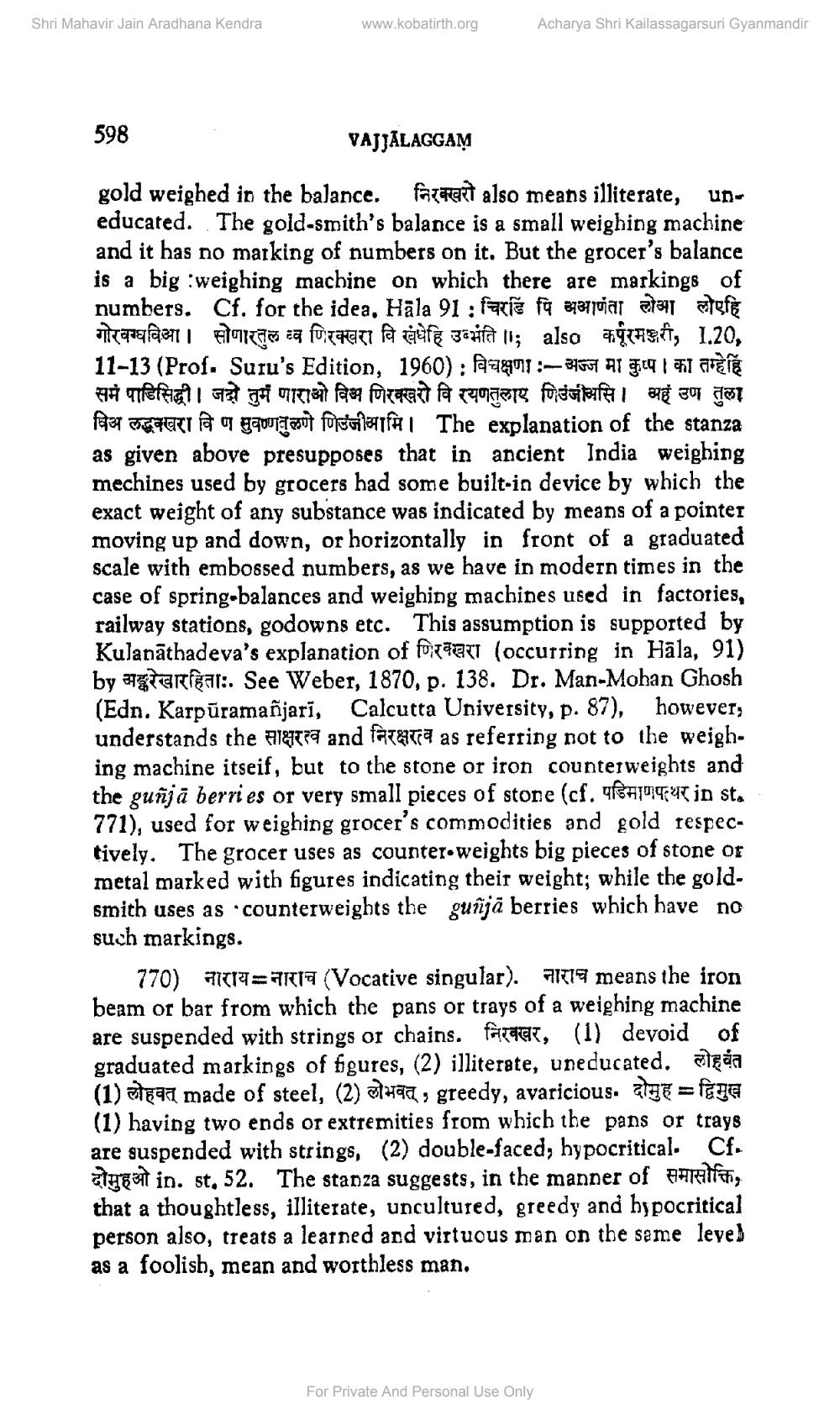________________
Shri Mahavir Jain Aradhana Kendra
598
www.kobatirth.org
Acharya Shri Kailassagarsuri Gyanmandir
VAJJALAGGAM
un
gold weighed in the balance. निरखखरो also means illiterate, educated. The gold-smith's balance is a small weighing machine and it has no marking of numbers on it. But the grocer's balance is a big weighing machine on which there are markings of numbers. Cf. for the idea. Hala 91: face far tar stefe गोरवग्धविआ । सोणारतुल व णिरक्खरा वि खंधेहि उन्भेति ॥; also कर्पूरमञ्जरी, 1.20, 11-13 (Prof. Suru's Edition, 1960) : विचक्षणा :- अज्ज मा कुप्प। का तम्हेहि समं पाडिसिद्धी । जझे तुमं णाराओ विअ णिरक्खरो वि रयणतुलाए णिउंजीभसि । अहं उण तुला ar लक्खराणि सुणतुणे णिउँजी आमि। The explanation of the stanza as given above presupposes that in ancient India weighing mechines used by grocers had some built-in device by which the exact weight of any substance was indicated by means of a pointer moving up and down, or horizontally in front of a graduated scale with embossed numbers, as we have in modern times in the case of spring-balances and weighing machines used in factories, railway stations, godowns etc. This assumption is supported by Kulanathadeva's explanation of f (occurring in Hāla, 91) by agterfear. See Weber, 1870, p. 138. Dr. Man-Mohan Ghosh (Edn. Karpūramañjarī, Calcutta University, p. 87), however, understands the and far as referring not to the weighing machine itseif, but to the stone or iron counterweights and the gunja berries or very small pieces of stone (cf. in st. 771), used for weighing grocer's commodities and gold respectively. The grocer uses as counter weights big pieces of stone or metal marked with figures indicating their weight; while the goldsmith uses as counterweights the gunja berries which have no such markings.
770) नाराय= नाराच ( Vocative singular ). नाराच means the iron beam or bar from which the pans or trays of a weighing machine are suspended with strings or chains. far, (1) devoid of graduated markings of figures, (2) illiterate, uneducated. ga (1) लोहवत् made of steel, ( 2 ) लोभवत्, greedy, avaricious• दोमुह = द्विमुख (1) having two ends or extremities from which the pans or trays are suspended with strings, (2) double-faced, hypocritical. Cf. atyget in. st. 52. The stanza suggests, in the manner off, that a thoughtless, illiterate, uncultured, greedy and hypocritical person also, treats a learned and virtuous man on the same level as a foolish, mean and worthless man.
For Private And Personal Use Only




